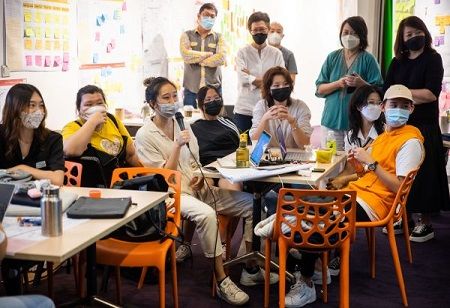The Design Education Advisory Committee (DEAC) in Singapore has introduced a blueprint named the "future design school," aimed at cultivating a workforce capable of thriving in the digital era. This committee, appointed by the Ministry of Trade and Industry (MTI) and led by the DesignSingapore Council (Dsg), emphasizes enhancing the innovation and creative problem-solving skills of upcoming generations.
This initiative aims to equip Singapore’s workforce to adapt effectively to the increasing prevalence of artificial intelligence (AI) in the digital age. It responds to current global challenges such as climate change, resource limitations, and aging populations, as highlighted by the DEAC. The committee underscores the significance of design skills in providing young people with a robust foundation. The future educational framework intends to seamlessly incorporate design-based learning into everyday curriculum, thereby preparing the next generation more comprehensively.
As part of its second-term report publication, the committee has unveiled a blueprint that includes four proof-of-concepts aimed at bridging the talent gap. These concepts are: the National Design Project, demonstrating the influence of design education; the Seamless Career Pathway, integrating education with industry for enhanced relevance; the Cross-IHL Learning Bootcamp, fostering new interests and capabilities beyond design; and Design Research Collaborations, promoting innovation and broader applications.
At higher education levels, the blueprint aims for students to participate in a network of institutes of higher learning offering courses and cultural elements that reflect their distinctive attributes and heritage, referred to as a 'one design school'. The second-term report publication elaborates on three recommendations put forth by DEAC two years ago: to establish a design education system that is globally respected yet uniquely Singaporean; to integrate design education closely with industry practices; and to solidify DEAC as the leading platform for thought leadership and practical insights in design education. DEAC members dedicated over S$1,000,000 and 3,000 hours to develop and experiment with various prototypes from 2022 to 2024.

